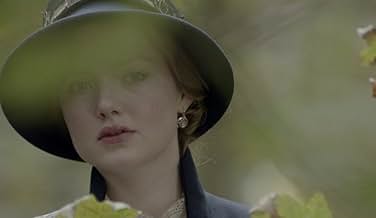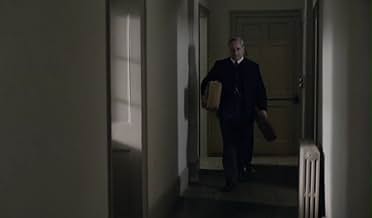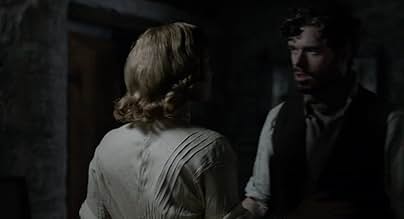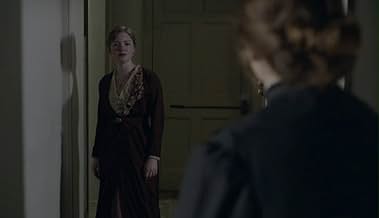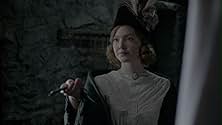In 1913 Connie Reid marries wealthy Nottingham colliery owner Sir Clifford Chatterley but he returns from the Great War disabled and in a wheelchair. Connie is loyal but begins to feel alien... Read allIn 1913 Connie Reid marries wealthy Nottingham colliery owner Sir Clifford Chatterley but he returns from the Great War disabled and in a wheelchair. Connie is loyal but begins to feel alienated as he engages a nurse, Mrs Bolton, and excludes her from pit business. Despite his de... Read allIn 1913 Connie Reid marries wealthy Nottingham colliery owner Sir Clifford Chatterley but he returns from the Great War disabled and in a wheelchair. Connie is loyal but begins to feel alienated as he engages a nurse, Mrs Bolton, and excludes her from pit business. Despite his desire for an heir his impotency results in a lack of sexual activity and Connie is drawn to... Read all
- Director
- Writers
- Stars
- Awards
- 2 wins total
- Arm Amputee British Officer
- (uncredited)
- Soldier
- (uncredited)
- Bertha's Lover
- (uncredited)
- Ambulance Driver
- (uncredited)
- Director
- Writers
- All cast & crew
- Production, box office & more at IMDbPro
Featured reviews
Director Mercurio seems far more interested in exploring the consequences of class-difference in a highly stratified society. Clifford Chatterley (James Norton) views his mine-workers and servants as sub-humans, whose sole function consists of serving the rich. In one sequence he sits in his motor-cycle and sidecar and lets Mellors push him out of a rut, even though this proves injurious to Mellors' health. He treats Ivy Bolton (Jodie Comer) with equal disdain - that is, until the climactic moment when Bolton confronts her master with the news of Lady Chatterley's affair.
The contrast between rich and poor could not be more stark. The film opens with a mining accident in which Ivy's husband Ted (Chris Morrison) is crushed to death by an underground fall of coal. Left with little or nothing to survive on, Ivy can only eke out an existence serving the rich. By contrast Clifford lives a life of comfortable gentility, indulging in frequent parties whose guests dance to Scott Joplin rag-times played by a servile band.
It is these class-differences that inspire Mellors' resentment. The reason for his feelings is clearly explained towards the end; suffice to say that he believes that the landed gentry have little or no conception of what it is to live on the bread-line, at the beck and call of the upper classes. We might be persuaded to see his affair with Lady Chatterley as a means for him to take revenge on all the social slights he has experienced throughout his life.
Yet Grainger's performance proves that this is clearly not the case. As Lady Chatterley she spends much of her time caring for her husband, even though it is a thankless task. Frustrated by her husband's impotence, she looks for love and compassion; and finds both in Mellors. She resembles a ship without a rudder; constrained by the conventions of a restrictive upper class, she longs to express herself both emotionally and sexually. Grainger proves extremely good at suggesting this frustration through small facial gestures puncturing her veneer of social respectability.
To be honest, this version of LADY CHATTERLEY does not make any attempt to explore sexual feelings in any great depth, as in Lawrence's source-text. Director Mercurio sees the story as a tussle between duty and emotion, which reaches a climax at the end when the three protagonists at last confront one another.
This is a thoroughly satisfying production of the Lawrence classic, marred only by some syrupy music (by Csrly Paradis) that sometimes directs our attention away from the characters' emotions.
The film does have its strong points, but it tends to melodrama. The unspoken feeling of the book's characters is gone, and I don't know if that's because the filmmakers believe the viewer is too thick to pick up on nuances or they just want to make sure we get it. The film isn't bad but it doesn't have the ring of truth because for me it feels too modern. Allegedly DH Lawrence originally entitled his book "Tenderness" and his narrative implies that the upper-middle-class Lady Chatterley feels the urge for tenderness that the common people feel, rather than people of Sir Clifford's ilk. This kind of narrative requires a sensitive handling of the subject and the present film takes a hammer and chisel approach with the characters frequently shouting their grievances at one another and fibrillating with anger.
There's a soap opera feel to the present film and it misses the class-conscious simmering feeling that the book speaks to. The 1981 version with Sylvia Krystel, though maligned, is perhaps more successful at accurately capturing the feeling and nuances of the book. The 1981 version also more adeptly showed the Chatterleys in their rural environment, which they are at once a part of and at odds with. And this is in keeping with DH Lawrence's thematic inclination both here and in his other works.
This movie is about a wealthy newlywed couple who, after the husband returns from war paralyzed from the waist down, begin to drift apart. The drifting in mostly on the part of the wife due to the husbands frustrations and longing for an heir he can not provide them with. This sets the wife's eye on the estate's newly hired gamekeeper. Slowly falling for one another leads the adulterous couple down a complicated road.
I say it was sad only because I had some feelings about the husband's life change and how hard that would've been to deal with. The movie wasn't bad. It has some nice costumes and some beautiful camera work but it doesn't make it very far past an average film for me.
Did you know
- TriviaRichard Madden who plays Oliver Mellers in this adaptation played Robb Stark, son of Eddard "Ned" Stark in Game of Thrones. Ned Stark was played by Sean Bean who played Oliver Mellers in Lady Chatterley back in 1993.
- GoofsIn the opening scenes there is an explosion in the coal mine where Mellors works. Some of the men involved in the rescue operation have faces completely blackened with coal dust. However, their clothes, in comparison, are only lightly stained.
- Quotes
Oliver Mellors: You have the nicest behind of any a woman.
- ConnectionsFeatured in Gogglebox: Episode #6.1 (2015)
Details
- Release date
- Country of origin
- Language
- Also known as
- Коханець леді Чаттерлей
- Filming locations
- Rhondda Heritage Park, Rhondda Cynon Taff, Wales, UK(Tevershall pit)
- Production companies
- See more company credits at IMDbPro

